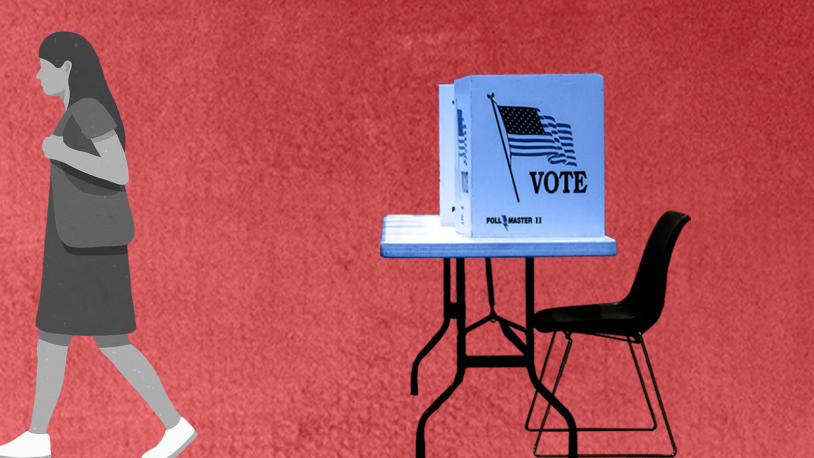
What we can learn about abortion politics from Kansas’ shocking rejection of new restrictions

August 5, 2022
August 5, 2022
Kansas voters on Tuesday resoundingly rejected a proposed amendment that would have removed the right to abortion from the state constitution.
The amendment’s success would have allowed the Republican-dominated state Legislature to ban or severely limit abortion rights following the U.S. Supreme Court’s overturning of Roe v. Wade in June. Its rejection, by a margin of 59 percent to 41 percent, shocked not just the amendment’s supporters — who had expected to win in the reliably conservative state, in a primary with little else to draw Democrats to the polls — but also those working to defeat it.
What can Tuesday’s vote in Kansas tell us about post-Roe abortion politics in the U.S. and how the fallout from the Supreme Court’s decision might affect the 2022 midterms?
Republicans ignore the Kansas vote at their peril
“The Roe earthquake is real,” David Siders, Adam Wren, and Zach Montellaro write at Politico. “It would have been a victory for Democrats and abortion rights activists if they’d even kept it close in Kansas,” but instead they got a wipe-out. “And if the politics of Roe proved fraught for Republicans in Kansas,” they add, “it’s going to be even more treacherous for the GOP in swing-ier, more moderate swaths of the country.”
This wasn’t a narrow victory in terms of political geography, either. The turnout far exceeded expectations, and the measure went down to defeat not just in the more liberal urban areas but also in the suburbs and many rural counties — including 14 that backed former President Donald Trump in 2020. Voter registration soared after the Supreme Court struck down Roe, and 70 percent of those newly registered Kansas voters were women, according to Democratic voter-data analyst Tom Bonier.
A fifth of the people who voted on the referendum did not vote in the Democratic or Republican gubernatorial primaries, The Wall Street Journal notes, suggesting independents turned out just to vote against the referendum.
Democrats took the amendment’s sound defeat as a positive sign that, in a year they face strong headwinds approaching the November election, the assault on abortion rights could motivate Democratic-leaning voters to flock to the polls. “The enthusiasm gap — which normally favors the party out of power — is now closing, and there was no greater example of that than in Kansas yesterday,” Patrick Gaspard, CEO of the Center for American Progress Action Fund, said Wednesday. “This could be a signal for what’s to come.”
Don’t read too much into one election
The decisive rejection of the anti-abortion amendment in deep-red Kansas certainly shook up the midterm landscape, “galvanizing Democrats and underscoring for Republicans the risks of overreaching on one of the most emotionally charged matters in American politics,” The New York Times reports. But “both Republicans and Democrats caution against conflating the results of an up-or-down ballot question with how Americans will vote in November.”
The Kansas vote affirms the “near-universal consensus” by strategists from both parties “that Roe will likely help Democrats at the margins in November, energizing base Democrats and improving the party’s standing with independents and suburban women,” Politico‘s Siders, Wren, and Montellaro report, but in this “bleak midterm election landscape for Democrats,” it “almost certainly won’t be enough to keep Republicans from winning the House.”
“Add in candidates and a much more robust conversation about lots of other issues, this single issue isn’t going to drive the full national narrative that the Democrats are hoping for,” Iowa GOP operative David Kochel tells the Times. But the Kansas vote does hold a warning for Republicans that “the base of the GOP is definitely ahead of where the voters are in wanting to restrict abortion.”
This was a setback for abortion opponents, not a rout
“Yes, Kansas shocked the nation Tuesday night,” and the “unexpectedly resounding no vote” was a “huge setback for a briefly triumphant conservative movement” still basking in the glow of Roe‘s demise, Joel Mathis writes in The Wichita Eagle. And sure, “Democrats nationwide are suddenly heartened after a gloomy year, ready to take the battle to their Republican counterparts in this fall’s midterm elections,” but “a word of caution: Tuesday’s win for abortion rights probably won’t matter for too long.”
“If we’ve learned anything in 2022 about the pro-life movement in America — and in Kansas — it’s that it never, ever gives up,” Mathis writes. Abortion opponents “believe that abortion is literally murder,” and “there is no reason to believe that pro-life activists in Kansas will simply accept the will of the voters — no matter how clearly expressed — and move on” after “one measly election.”
“It took us 50 years to address Roe,” agreed Kristi Hamrick with Students for Life of America, one of the national groups that campaigned for the Kansas amendment. “I think we have the time and the people on our side to keep the fight going.”
The only winning way forward on abortion is down the middle
“Kansas voters — underestimated by shocked liberals across the country — stood against the erosion of personal freedom,” Sarah Smarsh writes in the Times. That wasn’t a surprise to “many red-state moderates and progressives, who live with excruciating awareness of the gulf between their decent communities and the far-right extremists gerrymandering, voter-suppressing, and dark-moneying their way into state and local office.”
The results in Kansas “reveal that conservative politicians bent on controlling women and pregnant people with draconian abortion bans are out of step with their electorates, a majority of whom are capable of nuance often concealed by our two-party system,” Smarsh argues. The only way we’ll get sane abortion politics is by joining arms and working together, and “as we brace together for this post-Roe season, take heart: In the first battle, Kansas held the line.”
“The message sent by voters in Kansas on Tuesday was loud and clear, and “let’s hope Congress takes a cue and embeds access to abortion in federal law.,” The Washington Post wrote in an editorial. Democrats tried to do that with a sweeping bill, but Republicans and Sen. Joe Manchin (D-W.Va.) blocked it in the Senate.
“Now, though, a bipartisan group of senators — led by Tim Kaine (D-Va.) and Lisa Murkowski (R-Alaska) — has introduced a more modest measure that would codify federal abortion protections formerly provided by Roe,” the Post adds. It doesn’t give either side everything it wants, but “we urge Democrats to get behind this bipartisan effort. And Republicans should ask themselves if they want to face voters in three months having opposed abortions rights that — as was demonstrated in Kansas — are strongly supported by most Americans.”
August 5, 2022 August 5, 2022 Kansas voters on Tuesday resoundingly rejected a proposed amendment that would have removed the right to abortion from the state constitution. The amendment’s success would have allowed the Republican-dominated state Legislature to ban or severely limit abortion rights following the U.S. Supreme Court’s overturning of Roe v. Wade in…
August 5, 2022 August 5, 2022 Kansas voters on Tuesday resoundingly rejected a proposed amendment that would have removed the right to abortion from the state constitution. The amendment’s success would have allowed the Republican-dominated state Legislature to ban or severely limit abortion rights following the U.S. Supreme Court’s overturning of Roe v. Wade in…